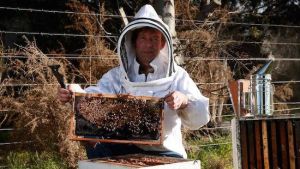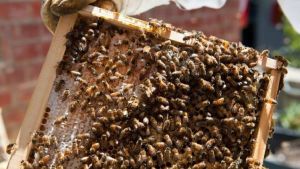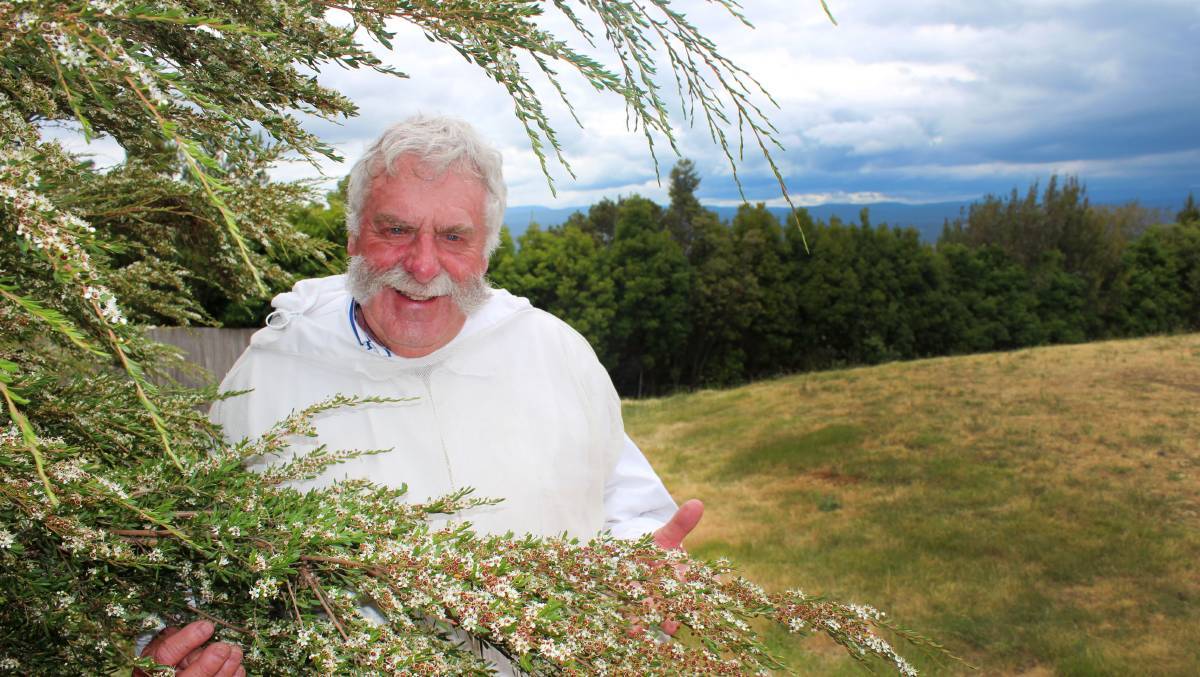
WAR CHEST: Australian Manuka Honey Association member Lindsay Bourke says manuka originated in Tasmania, not New Zealand. Picture: Hamish Geale
After receiving a federal government grant to grow the international market for Australian manuka honey in March, the Australian Manuka Honey Association received extra support from the industry body.
Australian Honey Bee Industry Council has committed $50,000 to help the association protect and promote the global appeal and awareness of the honey.
This money will help in the association’s fight against New Zealand honey producers’ attempt to trademark the word “manuka”, council executive director Trevor Weatherhead said.
“At present, a group within New Zealand is trying to trademark the term ‘manuka honey’ globally,” Mr Weatherhead said.
“The suggestion that only honey from New Zealand can be described as ‘Manuka’ is not credible and is strongly refuted by the Australian honey industry.”
Manuka, or Leptospermum scoparium, is believed to have originated from Tasmania.
“Since beekeeping was introduced into Australia, we have had a long history of producing manuka honey and have been selling manuka from Australia for many years,” he said.
Australia is home to the largest diversity of Leptospermum plants in the world, with more than 80 species, while New Zealand has only one species (Leptospermum scoparium).
Native Leptospermum plants are found throughout Australia.
Tasmanian Beekeepers Association president and association member Lindsay Bourke said member spoke with council representatives on Wednesday night to decide the next steps.
“The association needs different levels of support. We are also going to seek more support at the AGM on July 1,” Mr Bourke said.
Association chairman Paul Callander said Australian manuka producers would prefer to work in partnership with New Zealand than argue about a descriptive term.
“As long as Australia is allowed to use the term ‘Australian manuka’, we have no issues and would work with New Zealand to commit to a co-funded global marketing campaign telling the world about the health benefits of manuka from both Australia and New Zealand,” Mr Callender said.
The US Intellectual Property office has rejected the New Zealand twice application on the basis that “manuka” is a descriptive term only, indicating the honey is derived from Leptospermum, regardless of the region, he said.
Johanna Baker Dowdell
JUNE 13 2018 - 5:31PM




